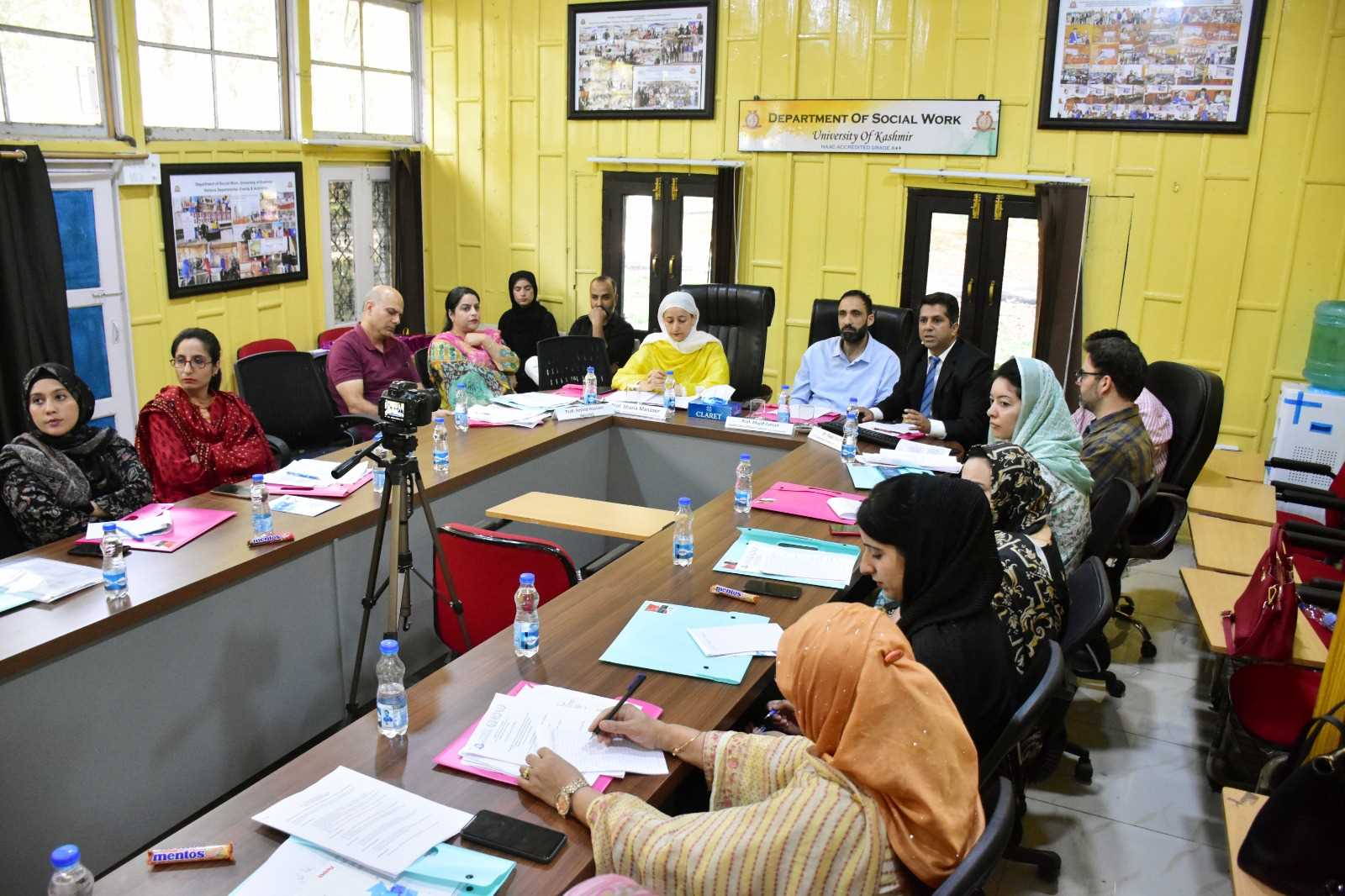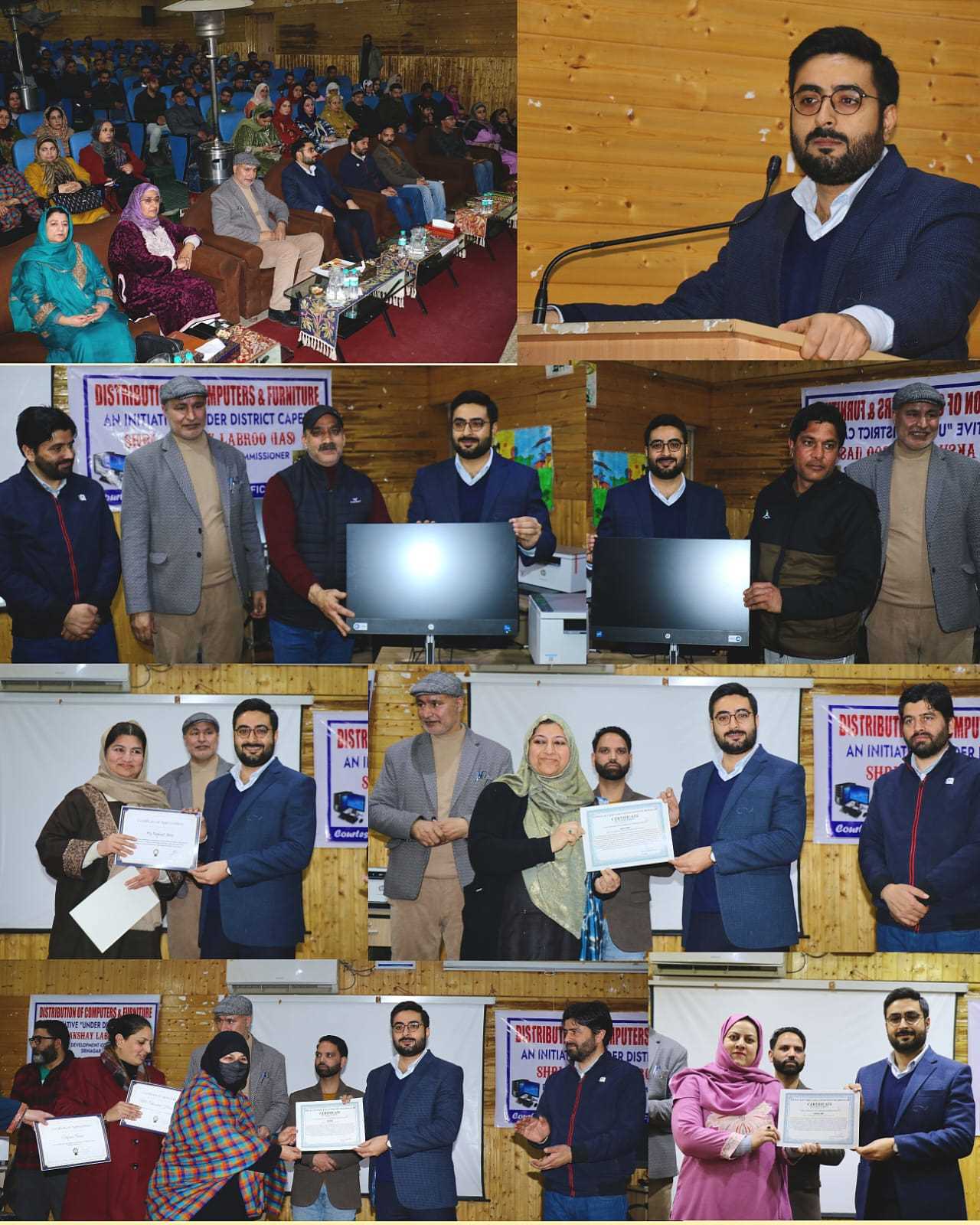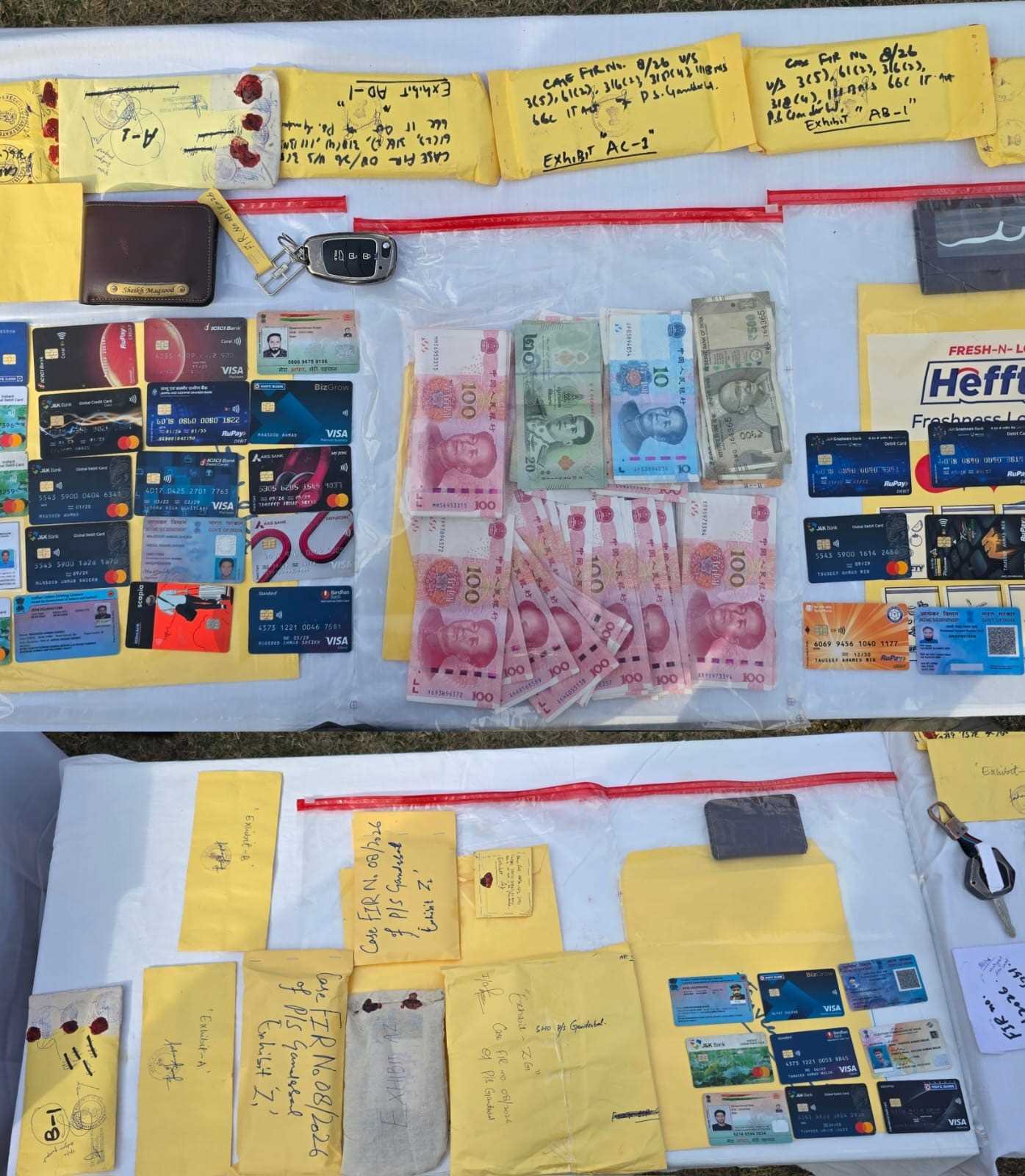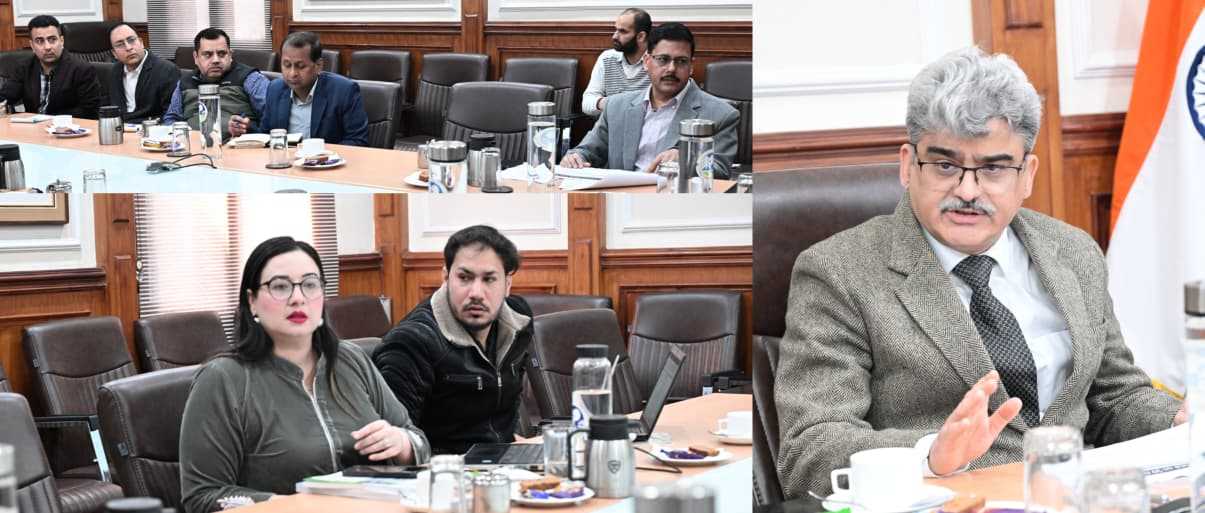
To strengthen teachers’ role in addressing substance abuse, suicide prevention, and overall youth well-being in Kashmir, the Department of Social Work, University of Kashmir (KU), organised a two-day Master Training Workshop for Mental Health (Training the Teachers Programme) at the Main Campus. The workshop included selected faculty members from higher secondary schools and colleges of the Valley to strengthen their capacity as frontline responders for supporting students’ mental health.
The workshop was based on an ICMR (Indian Council of Medical Research) research project on primary prevention interventions for youth in Kashmir, carried out by the Department of Social Work, KU, with Dr. Aadil Bashir, faculty member at the department, as the Principal Investigator (PI). Drawing from extensive research and assessments, the team has developed a practical manual titled “Wal Sukoon Chandaw” (Come let’s find peace), designed to provide teachers with structured tools and strategies for guiding young people towards healthier coping mechanisms and resilience.
Vice-Chancellor KU, Prof. Nilofer Khan, in her message, said, “Equipping teachers with knowledge and skills to address mental health challenges is an important step in ensuring a safer, healthier academic environment. This initiative reflects our varsity's commitment to addressing pressing social concerns through research-based interventions.”
Controller of Examinations KU, Dr. Majid Zaman, in his inaugural address, highlighted the urgent need to address the growing mental health challenges among youth. He said, “Teachers, apart from being academic guides, are also key figures in safeguarding the emotional and psychological well-being of students. This workshop equips them with evidence-based tools to detect early signs of distress, intervene effectively, and create safe spaces for dialogue.”
Prof. Shazia Manzoor, Head, Department of Social Work KU, emphasized the need to address mental health challenges among children and young adults as Kashmiri society undergoes transitions, highlighting that teachers, parents, and the community must work collectively to ensure early support and well-being of youth.
Dr. Aadil Bashir, faculty at the Department of Social Work KU and PI, presented a detailed overview of the Wal Sukoon Chandaw manual, which includes modules on mindfulness, emotional regulation, stress management, and peer support systems. He also unveiled the e-manual, highlighting its accessibility for wider use across schools and colleges.
The workshop featured technical sessions on experiential learning for stress management, role plays focused on classroom-based interventions, group activities to build peer support, and training modules on risk assessment. These sessions aimed to translate the manual into practical classroom strategies for teachers.





To strengthen teachers’ role in addressing substance abuse, suicide prevention, and overall youth well-being in Kashmir, the Department of Social Work, University of Kashmir (KU), organised a two-day Master Training Workshop for Mental Health (Training the Teachers Programme) at the Main Campus. The workshop included selected faculty members from higher secondary schools and colleges of the Valley to strengthen their capacity as frontline responders for supporting students’ mental health.
The workshop was based on an ICMR (Indian Council of Medical Research) research project on primary prevention interventions for youth in Kashmir, carried out by the Department of Social Work, KU, with Dr. Aadil Bashir, faculty member at the department, as the Principal Investigator (PI). Drawing from extensive research and assessments, the team has developed a practical manual titled “Wal Sukoon Chandaw” (Come let’s find peace), designed to provide teachers with structured tools and strategies for guiding young people towards healthier coping mechanisms and resilience.
Vice-Chancellor KU, Prof. Nilofer Khan, in her message, said, “Equipping teachers with knowledge and skills to address mental health challenges is an important step in ensuring a safer, healthier academic environment. This initiative reflects our varsity's commitment to addressing pressing social concerns through research-based interventions.”
Controller of Examinations KU, Dr. Majid Zaman, in his inaugural address, highlighted the urgent need to address the growing mental health challenges among youth. He said, “Teachers, apart from being academic guides, are also key figures in safeguarding the emotional and psychological well-being of students. This workshop equips them with evidence-based tools to detect early signs of distress, intervene effectively, and create safe spaces for dialogue.”
Prof. Shazia Manzoor, Head, Department of Social Work KU, emphasized the need to address mental health challenges among children and young adults as Kashmiri society undergoes transitions, highlighting that teachers, parents, and the community must work collectively to ensure early support and well-being of youth.
Dr. Aadil Bashir, faculty at the Department of Social Work KU and PI, presented a detailed overview of the Wal Sukoon Chandaw manual, which includes modules on mindfulness, emotional regulation, stress management, and peer support systems. He also unveiled the e-manual, highlighting its accessibility for wider use across schools and colleges.
The workshop featured technical sessions on experiential learning for stress management, role plays focused on classroom-based interventions, group activities to build peer support, and training modules on risk assessment. These sessions aimed to translate the manual into practical classroom strategies for teachers.
© Copyright 2023 brighterkashmir.com All Rights Reserved. Quantum Technologies